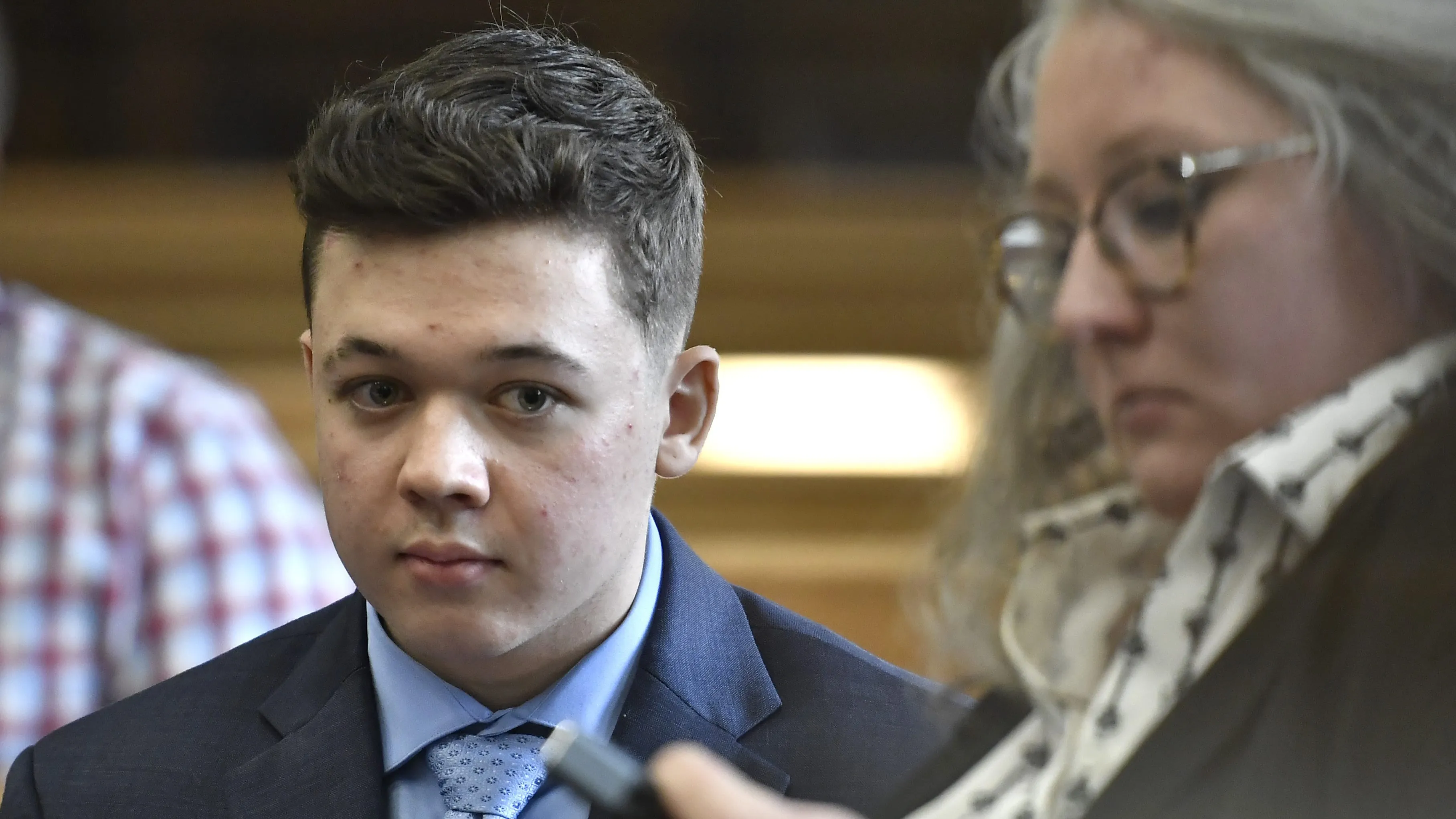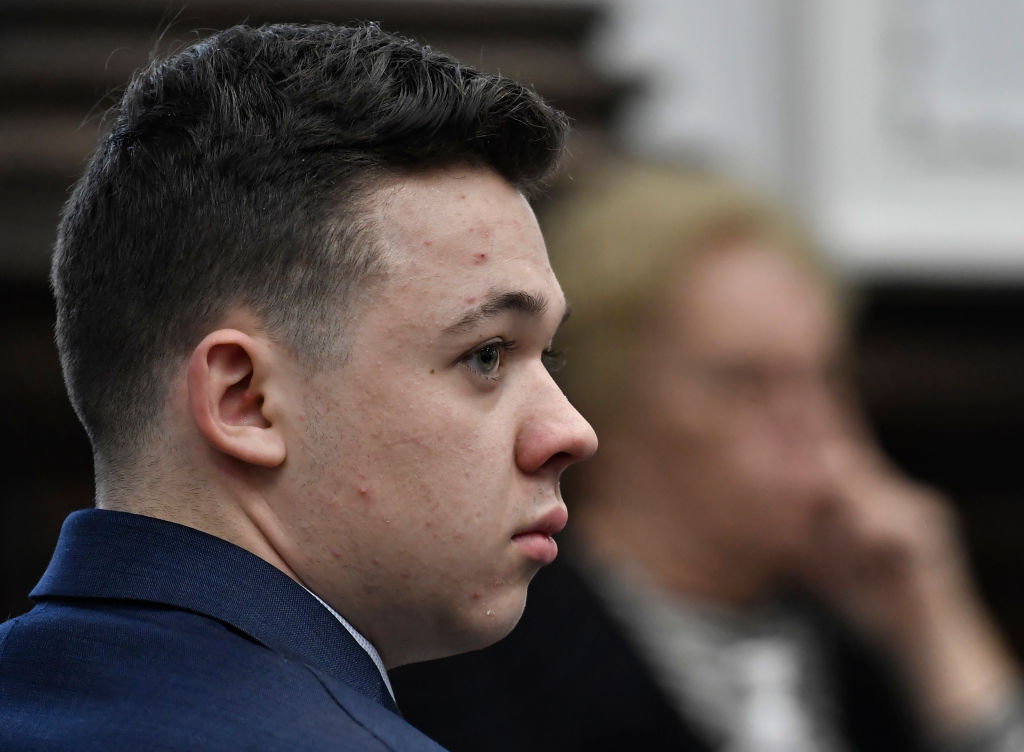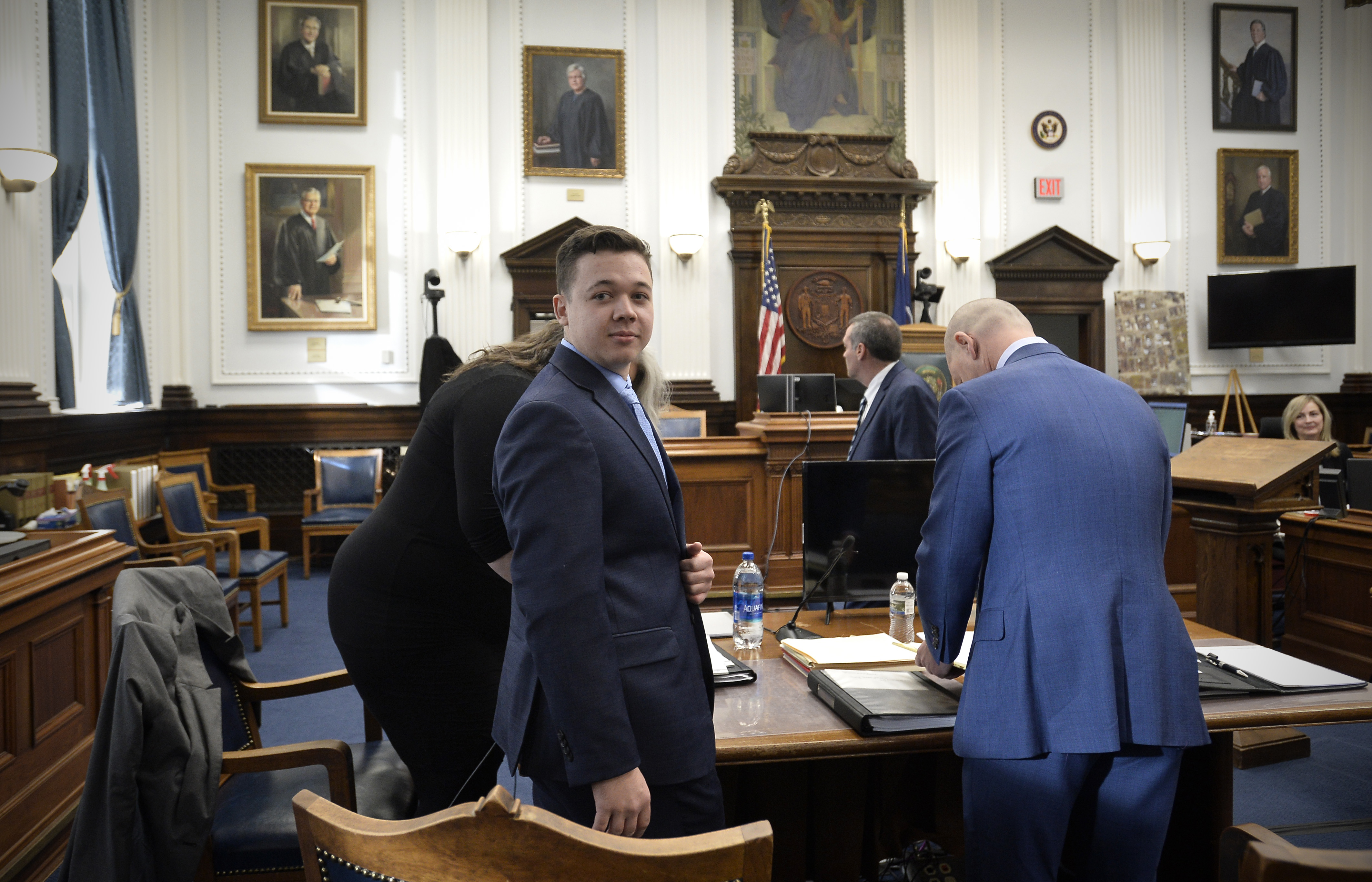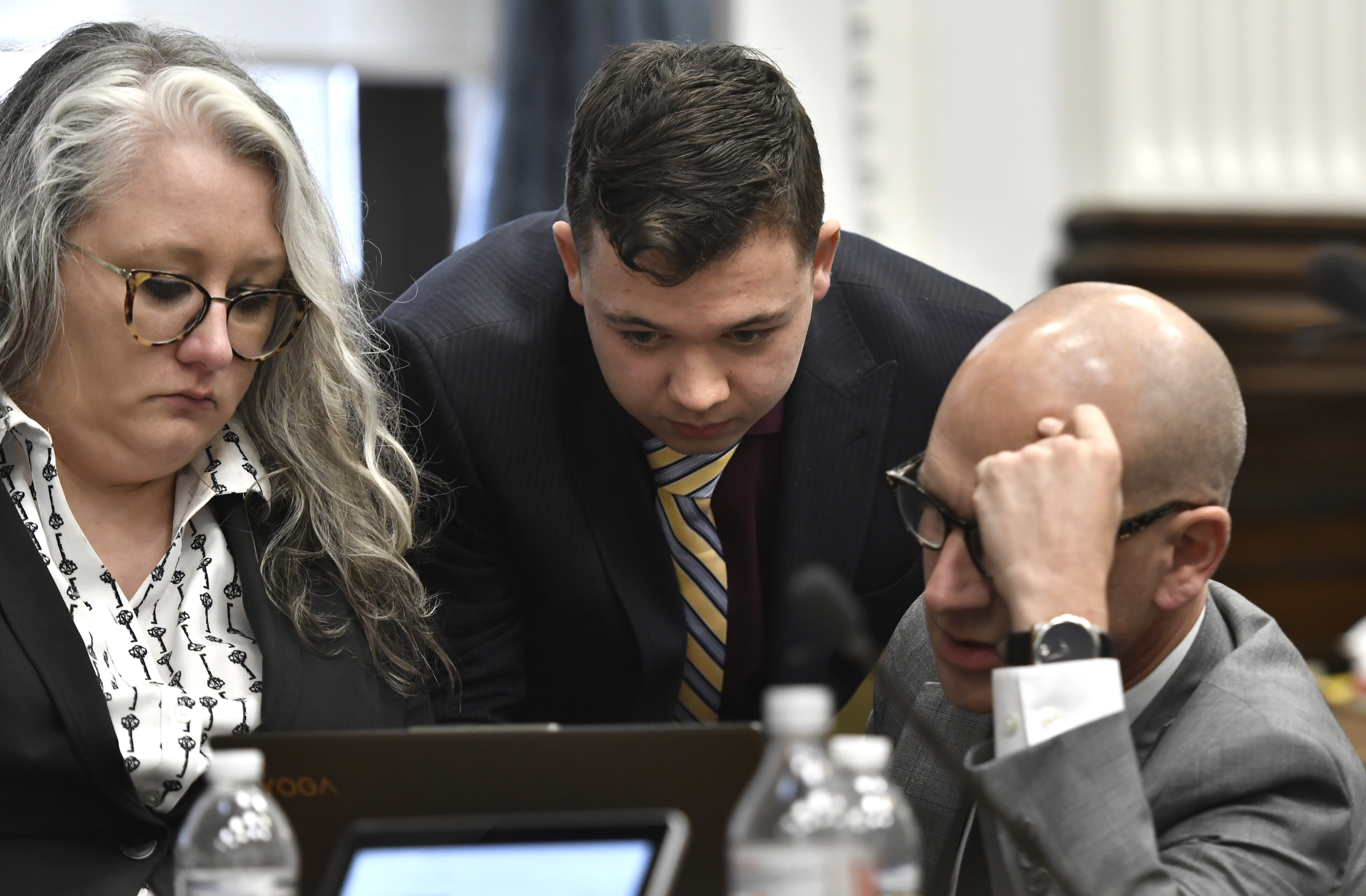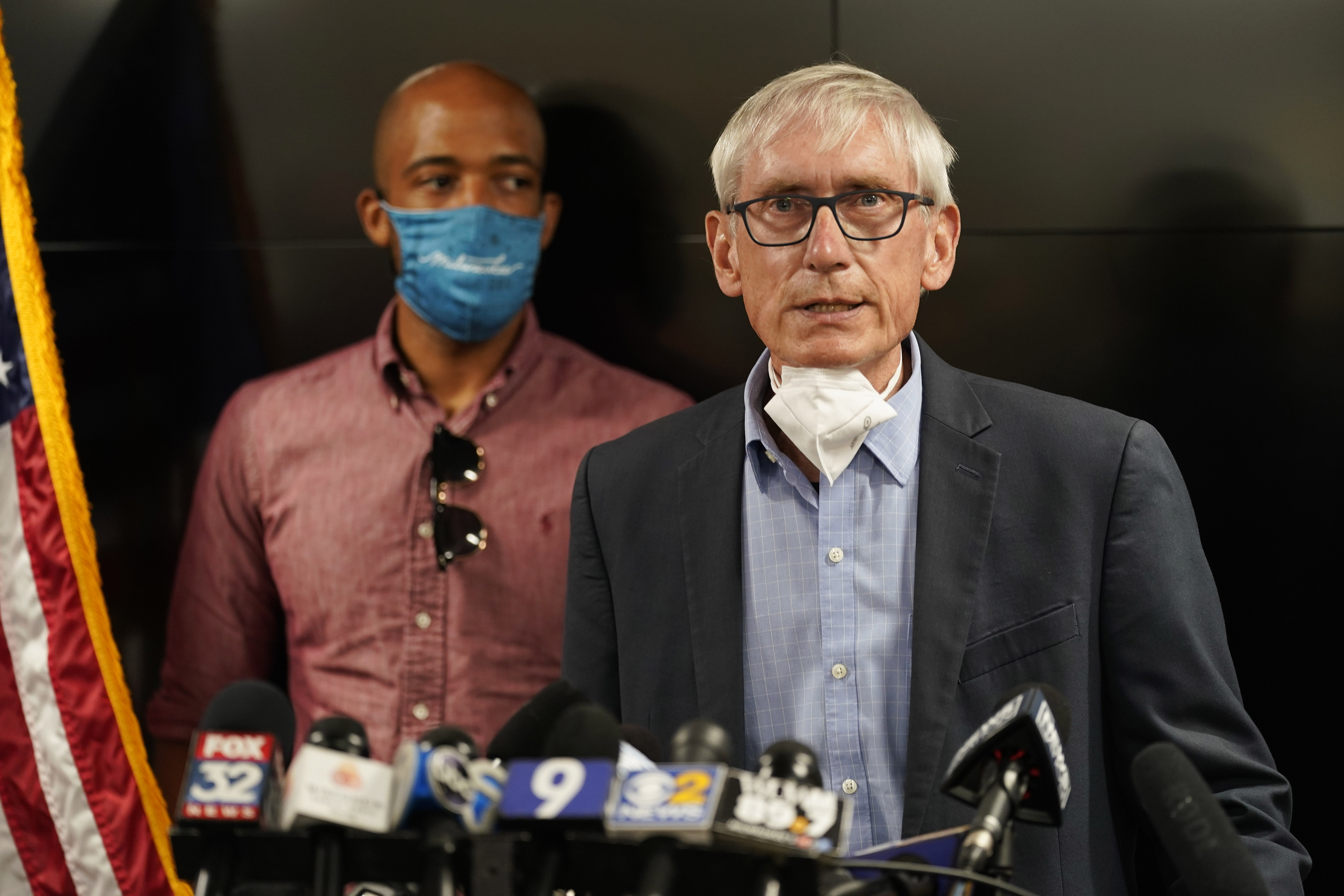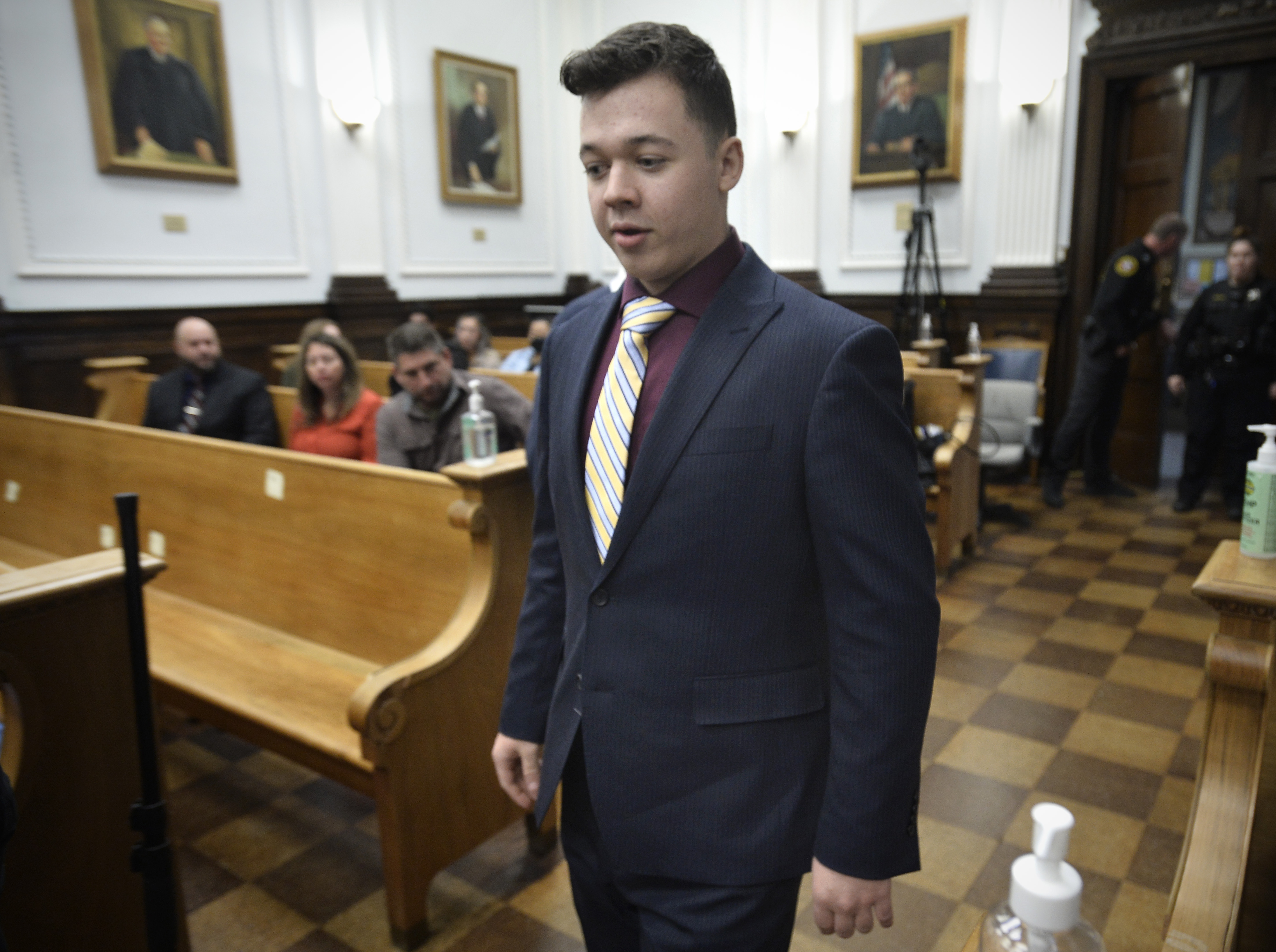On the surface, it looked like prosecutors’ easiest task at Kyle Rittenhouse’s murder trial would be convicting him of a much less significant charge — being a minor in possession of a firearm.
Rittenhouse was 17 when he shot three people, killing two, with a semi-automatic rifle on the streets of Kenosha, Wisconsin, during a protest against police brutality last year. Prosecutors brought multiple charges against him, including first-degree intentional homicide, attempted homicide, reckless endangerment and the firearm possession count.
With legal experts saying prosecutors struggled to counter the Illinois man’s claims of self-defense, the best bet for a conviction looked like the gun charge. But Rittenhouse’s defense team dug up an exception to the prohibition and Judge Bruce Schroeder dismissed the count Monday, just hours before jurors got the case.
“It’s very significant,” former federal prosecutor Phil Turner, who is not involved in the case, said of Schroeder’s decision. “It sounds like he’d be guilty of that and he’d get a conviction. You can at least assuage the public you’ve got something as opposed to coming away with absolutely nothing, which is a distinct possibility in this case.”
Under Wisconsin law, anyone under 18 who possesses a dangerous weapon is guilty of a misdemeanor punishable by up to nine months behind bars.
On its face, convicting Rittenhouse on that count looked like a legal slam dunk. No one contested that he was 17 the night of the protest in August 2020. Bystander and surveillance video clearly shows him walking around with the rifle strapped to his chest before the shootings, using the gun to shoot and kill Joseph Rosenbaum and Anthony Huber and wound Gaige Grosskreutz.
But Rittenhouse’s attorneys seized on a subsection of the Wisconsin law that they argued limited it to short-barreled shotguns or rifles. Rittenhouse’s AR-15-style rifle was not short-barreled.
They asked Schroeder to dismiss the possession count on those grounds at a pretrial hearing in October. The judge acknowledged the intersection of the statutes was murky but ultimately refused to toss the charge. He said he might revisit the defense request, however.
Feeling out of the loop? We'll catch you up on the Chicago news you need to know. Sign up for the weekly> Chicago Catch-Up newsletter.
As Schroeder and attorneys from both sides debated the wording of jury instructions on Monday the defense renewed its request to dismiss the possession charge. Assistant District Attorney James Kraus argued that reading the statute to allow minors to carry any weapon except a short-barreled rifle or short-barreled shotgun basically negates the prohibition on minors carrying weapons.
“I believe that this . . . essentially swallows the entire statute,” Kraus said.
But this time Schroeder dismissed the charge after Kraus acknowledged that Rittenhouse’s rifle wasn’t a short-barreled. The judge noted that prosecutors filed a “very nice brief” laying out their arguments but that it should have been clear he had a “big problem” with the prohibition statute.
He said prosecutors could have asked a state appeals court to rule on whether the charge was valid “all along.” Then he caught himself, noting that he never issued a ruling against the prosecution that might have triggered such a request until just then with closing arguments minutes away.
“I think it ought to have been mighty clear that I had big problems with this statute,” Schroeder said. “I made no bones about that from the beginning. And there always was access to the court of appeals all along here. Well, I guess that’s not fair for me to say because I was sitting on it. So shame on me.”
Kenosha defense attorney Michael Cicchini, who is not involved in the case, said legal doctrine demands that when statutes aren’t clear they must be read in favor of the defense.
“This is the price the government must pay when it is incapable of drafting clear laws,” Cicchini wrote in an article discussing the doctrine.
Prosecutors can ask a state appeals court for clarifications and rulings in the middle of a case; they don’t have to wait until a verdict comes down. But usually prosecutors don’t make such a move unless a judge hands down an adverse decision, Cicchini said. In Rittenhouse’s case, Schroeder didn’t rule against Kraus until minutes before closing arguments began.
Turner, the former federal prosecutor, said prosecutors should have realized the issue wasn’t settled and headed Schroeder off by asking an appellate court for a ruling or filing more briefs.
“I’m hesitant to jump to the conclusion that the judge is doing something unfair to (prosecutors),” Turner said. “When the judge expressed skepticism early, they should have done something to make sure it’s clear. In a case of this magnitude, if I’m the prosecutor and the judge has expressed some skepticism or doubt about this, I’m going to do everything I can to sustain that count. When you heard early on there was some doubt, you’ve got to get on this.”
Prosecutors could immediately ask the court of appeals to stop the proceedings pending a ruling on the charge’s validity, but there was no indication Monday that they planned to do so.
Former Waukesha County District Attorney Paul Bucher downplayed the dismissal of the charge. He argued that it might even clarify the case for jurors.
“You’re talking about this extremely minor charge,” Bucher said. “(Prosecutors) are missing the boat. This is a homicide case. We had two individuals killed and one almost killed and they’re focusing on possession of a firearm. If the government thought this was the only count they could succeed on, yikes.”

